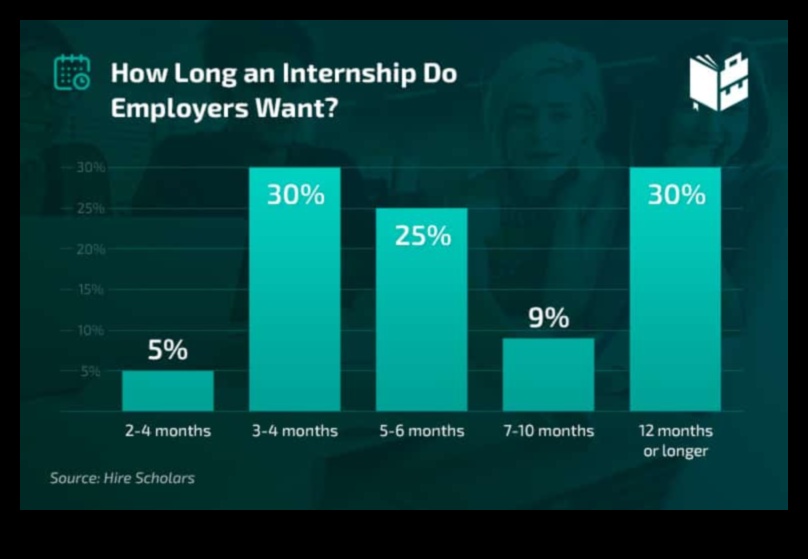
How long do internships last?
The average length of an internship is between three and six months, but there is no set duration. The length of an internship can vary depending on the industry, the company, and the role.
For example, internships in the tech industry tend to be shorter than internships in the finance industry. This is because tech companies need to get their interns up to speed quickly so that they can contribute to the team. Finance internships, on the other hand, can be longer because they require more in-depth training.
The role you are interning for can also affect the length of your internship. Internships that are more focused on research or development may be longer than internships that are more focused on customer service or marketing.
Ultimately, the best way to find out how long an internship will last is to speak to the employer directly. They will be able to give you a more accurate estimate based on the specific role and company.
Here are some additional resources that you may find helpful:
- How long should an internship last?
- How long should an internship last?
- How long should an internship last?
| Feature | Answer |
|---|---|
| Average length of an internship | 10-12 weeks |
| Benefits of internships | Gain experience, network, get paid |
| How to find an internship | Use online job boards, reach out to companies directly |
| How to prepare for an internship | Do your research, update your resume, practice your interview skills |
| How to succeed in an internship | Be proactive, ask questions, take initiative |
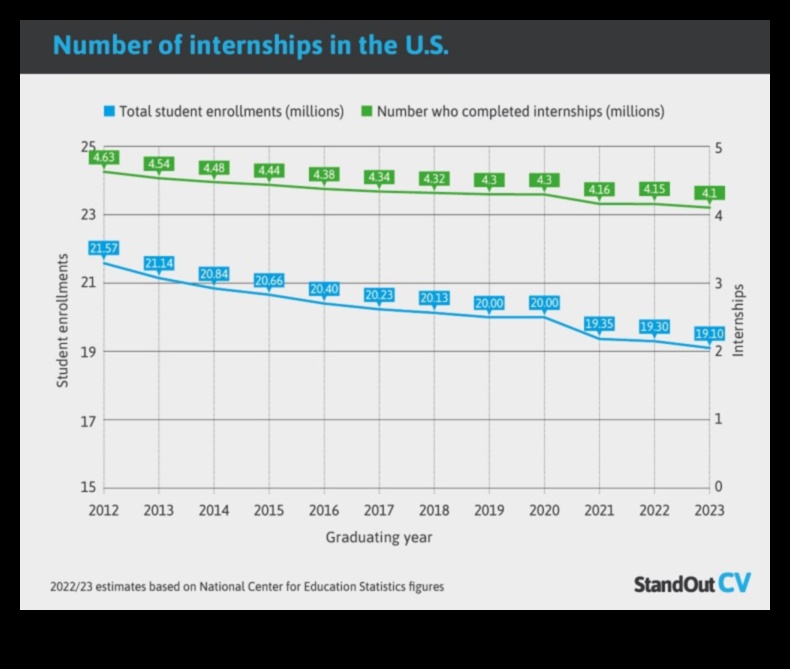
II. What is an internship?
An internship is a temporary position in which a student or recent graduate works for a company or organization in order to gain experience and learn about a particular field. Internships can be paid or unpaid, and they typically last for a few months.
Internships are a great way for students to get their foot in the door of a particular industry and learn about the day-to-day operations of a company. They can also help students build their networks and make connections that could lead to future job opportunities.
III. The average length of an internship
The average length of an internship is between three and six months. However, the length of an internship can vary depending on the industry, the company, and the role. For example, internships in the tech industry tend to be shorter than internships in the finance industry. Additionally, internships for entry-level positions are typically shorter than internships for more senior positions.
When you are looking for an internship, it is important to consider the length of the internship in relation to your goals and interests. If you are looking for a short-term experience that will give you a taste of a particular industry or company, then a three-month internship may be a good option. However, if you are looking for a longer-term experience that will allow you to gain more skills and experience, then a six-month internship may be a better option.
It is also important to note that the length of an internship does not necessarily reflect its value. A three-month internship can be just as valuable as a six-month internship, as long as you are able to make the most of your time.
III. The average length of an internship
The average length of an internship is between 10 and 12 weeks, according to a survey by the National Association of Colleges and Employers (NACE). However, the length of an internship can vary depending on the industry, the company, and the specific role.
For example, internships in the tech industry tend to be shorter than internships in other industries, such as finance or consulting. This is because tech companies often need to get new employees up to speed quickly so that they can contribute to the team.
On the other hand, internships in finance or consulting can be longer, as these industries require more specialized training and experience.
Ultimately, the best way to determine the average length of an internship in your field of interest is to talk to your career advisor or to reach out to employers directly.
How long do internships last?
The average length of an internship is between 10 and 12 weeks. However, internships can vary in length from a few weeks to a full year. The length of an internship will depend on a number of factors, such as the industry, the company, and the role.
Here are some of the factors that can affect the length of an internship:
- Industry: Internships in some industries, such as finance and consulting, tend to be longer than internships in other industries, such as marketing and public relations.
- Company: Larger companies often offer longer internships than smaller companies.
- Role: Internships that involve more hands-on work or that require a higher level of skill or expertise tend to be longer than internships that are more focused on research or observation.
It is important to note that the length of an internship is not necessarily indicative of its quality. A shorter internship can be just as valuable as a longer internship, as long as it provides you with the opportunity to learn and grow.
When you are looking for an internship, it is important to consider the length of the internship and whether it is a good fit for your needs and goals. If you are looking for a long-term internship that will give you the opportunity to learn a lot and gain valuable experience, then a longer internship may be a good option for you. However, if you are looking for a shorter internship that will allow you to get your foot in the door of a particular industry or company, then a shorter internship may be a better option.
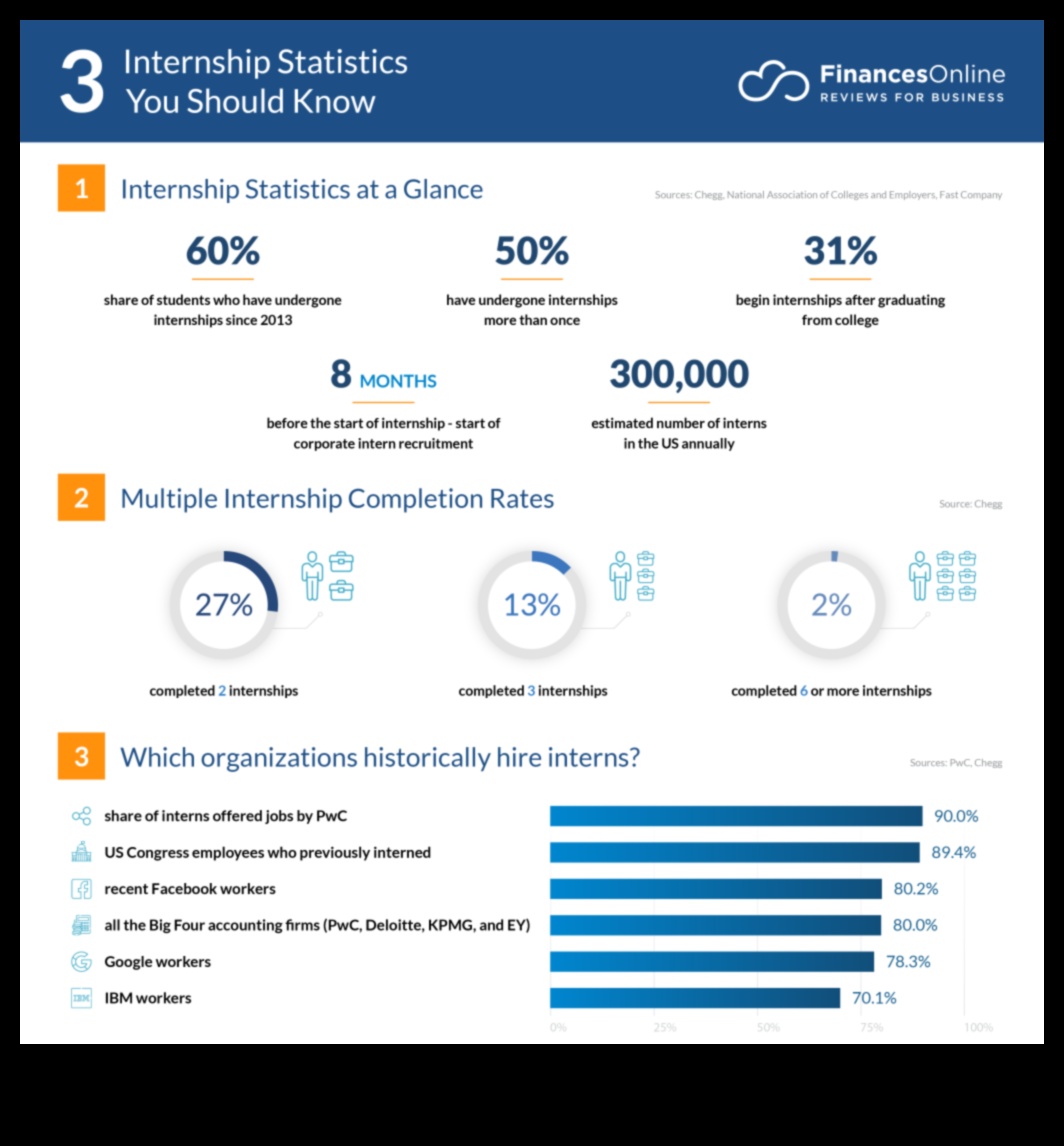
How long do internships last?
The average length of an internship is between three and six months. However, the length of an internship can vary depending on the industry, the company, and the role. Some internships may be shorter, lasting for just a few weeks or months, while others may be longer, lasting for up to a year.
There are a few factors that can affect the length of an internship. For example, internships in highly competitive industries, such as finance and consulting, are often shorter in length, as companies want to give as many students as possible the opportunity to intern. Internships in smaller companies may also be shorter, as these companies may not have the resources to support a longer internship.
Ultimately, the length of an internship is a decision that should be made between the student and the employer. Students should consider their own academic and career goals when determining how long an internship should be. Employers should consider the needs of their company and the role that the intern will be filling when determining the length of the internship.
How long do internships last?
The length of an internship can vary depending on the field, the company, and the student’s level of experience. In general, internships range from a few weeks to a few months. However, some internships can last for up to a year or more.
Here is a breakdown of the average length of internships in different fields:
- Business: 3-4 months
- Engineering: 3-6 months
- Computer science: 3-6 months
- Marketing: 2-4 months
- Media: 2-4 months
It is important to note that the length of an internship is not as important as the quality of the experience. When you are looking for an internship, focus on finding a position that is relevant to your career goals and that will provide you with valuable skills and experience.
If you are a student who is new to the workforce, it is a good idea to start with a shorter internship. This will give you a chance to get your feet wet and to learn what it is like to work in a professional setting. As you gain more experience, you can start to look for longer internships that will allow you to develop your skills and make a greater contribution to your team.
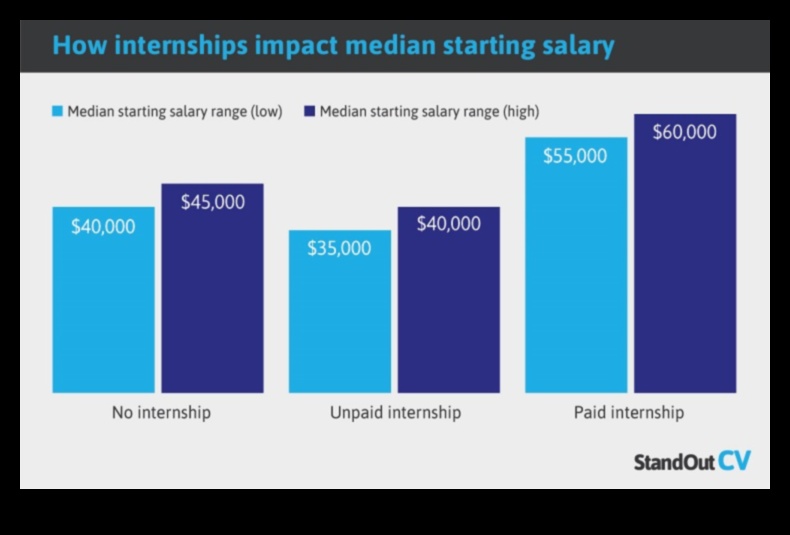
What to do after an internship
After completing an internship, there are a few things you can do to make the most of your experience.
- Write a thank-you note to your supervisor and any other colleagues you worked with. This is a great way to show your appreciation for their time and support, and it can also help you build connections for the future.
- Update your resume and LinkedIn profile to reflect your new skills and experience.
- Seek out opportunities to continue learning and developing your skills. This could involve taking courses, attending workshops, or networking with professionals in your field.
- Start applying for full-time jobs. Your internship experience can give you a leg up on the competition, so be sure to highlight it in your resume and cover letters.
By following these tips, you can make the most of your internship experience and set yourself up for success in your future career.
IX. FAQ
What is the average length of an internship?
The average length of an internship is 10 weeks, according to a survey by the National Association of Colleges and Employers (NACE). However, the length of an internship can vary depending on the industry, the company, and the role. Internships in some fields, such as finance and consulting, may be longer than 10 weeks, while internships in other fields, such as marketing and public relations, may be shorter.
How many internships should I do?
There is no one-size-fits-all answer to this question, as the number of internships you should do depends on your career goals and interests. However, most experts agree that it is beneficial to have at least one internship before you graduate from college. Internships can help you gain valuable experience, learn about different career paths, and network with professionals in your field.
What should I do if I don’t get an internship?
If you don’t get an internship, don’t despair. There are still plenty of ways to gain valuable experience and learn about your field of interest. You can volunteer for a nonprofit organization, start your own business, or take on a part-time job related to your career goals.
How can I make the most of my internship?
There are a few things you can do to make the most of your internship:
- Set clear goals for yourself. What do you want to achieve during your internship?
- Be proactive and take initiative. Don’t wait for someone to tell you what to do.
- Network with your colleagues and mentors.
- Get involved in extracurricular activities.
- Take advantage of any opportunities to learn and grow.
What is the difference between an internship and a co-op?
Internships and co-ops are both valuable ways to gain experience in your field of interest. However, there are some key differences between the two. Internships are typically unpaid, while co-ops are paid positions. Internships are also typically shorter than co-ops, lasting for a few weeks or months. Co-ops, on the other hand, can last for a semester or even a year.
Which is better, an internship or a co-op?
The best option for you will depend on your individual circumstances and career goals. If you are looking for a paid position that will give you the opportunity to gain real-world experience, a co-op may be a better option. However, if you are looking for a shorter, more flexible experience, an internship may be a better fit.
How long do internships last?
The average length of an internship is three to four months, but internships can range from a few weeks to a year or more. The length of an internship will vary depending on the industry, the company, and the specific role.
Here are three common questions about internship length and their answers:
Q: How long should I expect to intern for?
A: The best way to determine how long an internship should last is to talk to your potential employer. They will be able to give you a better idea of the length of time that they typically expect their interns to stay.
Q: What are the benefits of doing a longer internship?
A: There are a number of benefits to doing a longer internship, including:
- You will have more time to learn and develop your skills.
- You will have more opportunities to network and get to know people in your field.
- You will have a better chance of getting a job offer after your internship.
Q: What are the disadvantages of doing a longer internship?
There are a few potential disadvantages to doing a longer internship, including:
- You may have to take time off from school or work.
- You may not be able to afford to live on an intern’s salary for a long period of time.
- You may get bored or burned out if you are doing the same thing for a long time.
Ultimately, the decision of how long to intern for is a personal one. You need to weigh the benefits and disadvantages of doing a longer internship and decide what is best for you.

I. Introduction
II. Average Length of an Internship by Industry
III. Factors Affecting the Length of an Internship
IV. Benefits of a Longer Internship
V. Drawbacks of a Longer Internship
VI. How to Choose the Right Length of Internship for You
VII. Finding an Internship That’s the Right Length
VIII. Negotiating the Length of Your Internship
IX. Tips for Making the Most of a Longer Internship
X. FAQ
| Internship Length | Features |
|---|---|
| 3 months |
|
| 6 months |
|
| 9 months |
|
| 12 months |
|

II. Average Length of an Internship by Industry
The average length of an internship varies by industry. In general, internships in the tech industry tend to be shorter than internships in other industries, while internships in the finance industry tend to be longer. Here is a table of the average length of internships by industry:
| Industry | Average Length of Internship (in weeks) |
|---|---|
| Tech | 10-12 weeks |
| Finance | 12-16 weeks |
| Marketing | 10-12 weeks |
| Sales | 10-12 weeks |
| Human Resources | 10-12 weeks |
It is important to note that these are just averages, and the actual length of an internship can vary depending on the specific company and the role that you are interning for.
III. Factors Affecting the Length of an Internship
There are a number of factors that can affect the length of an internship, including:
- The industry in which the internship is taking place.
- The size of the company that is offering the internship.
- The role that the intern is playing.
- The intern’s level of experience.
- The intern’s availability.
In general, internships in the tech industry tend to be shorter than internships in other industries, such as finance or consulting. This is because tech companies often need to hire interns quickly to meet the demands of their fast-paced work environment. Internships at large companies also tend to be shorter than internships at small companies, as large companies have more resources to hire full-time employees. The role that the intern is playing can also affect the length of the internship. For example, an intern who is working on a specific project may only need to intern for a few weeks, while an intern who is working on a longer-term project may need to intern for a few months. The intern’s level of experience can also affect the length of the internship. An intern who has no prior experience may need to intern for a longer period of time in order to learn the ropes, while an intern who has previous experience may be able to intern for a shorter period of time. Finally, the intern’s availability can also affect the length of the internship. An intern who is only available for a few weeks may not be able to find an internship that is the right length for them.
IV. Benefits of a Longer Internship
There are a number of benefits to completing a longer internship, including:
- You will have more time to learn and develop your skills.
- You will have more opportunities to get involved in projects and make a real contribution to the company.
- You will have more chances to network with people and build relationships.
- You will have a better chance of getting a job offer after your internship.
Of course, there are also some drawbacks to completing a longer internship, such as the fact that it may take you longer to find a job after you graduate. However, if you are considering a longer internship, it is important to weigh the benefits and drawbacks carefully to make sure that it is the right decision for you.

V. Drawbacks of a Longer Internship
While there are many benefits to a longer internship, there are also some potential drawbacks to consider. These include:
- You may get bored or burned out.
- You may have difficulty finding a new internship after your first one ends.
- You may have to take on more responsibility than you are prepared for.
- You may not be able to get the same level of mentorship and guidance as you would in a shorter internship.
It is important to weigh the benefits and drawbacks of a longer internship before you decide if it is right for you. If you are considering a longer internship, be sure to do your research and make sure that you are prepared for the challenges that come with it.

VI. How to Choose the Right Length of Internship for You
There are a few factors to consider when choosing the right length of internship for you. These include:
- Your academic and professional goals
- Your availability
- The industry you’re interested in
- The company you’re interested in
Once you’ve considered these factors, you can start to narrow down your options and find an internship that’s the right length for you.
If you’re still not sure what length of internship is right for you, it’s a good idea to talk to your academic advisor, career counselor, or a mentor. They can help you weigh the pros and cons of different internship lengths and make the best decision for your individual needs.
Finding an Internship That’s the Right Length
There are a few things you can do to find an internship that’s the right length for you.
- Start by thinking about your goals and what you want to get out of your internship. Do you want to gain experience in a particular field? Learn new skills? Network with professionals? Once you know what you’re looking for, you can start to narrow down your search.
- Talk to your professors, career center, or internship advisor. They can help you identify potential internships that are a good fit for your interests and goals.
- Do your research. Read online reviews of companies and internships, and talk to people who have interned at the companies you’re interested in. This will help you get a better sense of what the internship experience is like and whether it’s a good fit for you.
- Apply for multiple internships. The more internships you apply for, the more likely you are to find one that’s the right length for you.
- Be prepared to negotiate the length of your internship. If you’re offered an internship that’s shorter than you’d like, don’t be afraid to ask for a longer term.
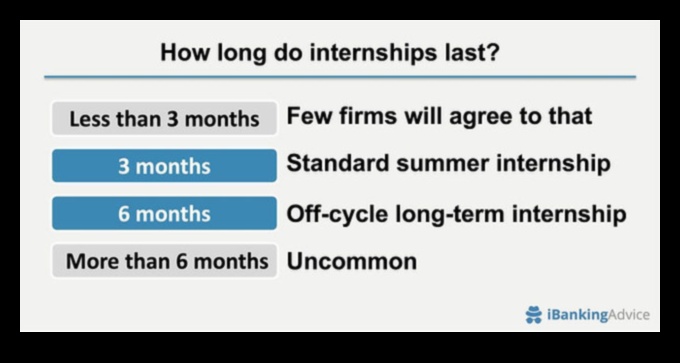
VIII. Negotiating the Length of Your Internship
When you’re offered an internship, you may be able to negotiate the length of the internship. Here are a few tips for negotiating the length of your internship:
- Do your research and know what the average length of an internship is for your field.
- Be prepared to explain why you think a longer internship would be beneficial to you and to the company.
- Be flexible and willing to compromise.
If you’re successful in negotiating a longer internship, you’ll have more time to learn and grow, and you’ll be more likely to make a positive impression on your employer.
IX. Tips for Making the Most of a Longer Internship
Here are some tips for making the most of a longer internship:
- Set clear goals for yourself and track your progress.
- Get involved in extracurricular activities and networking opportunities.
- Take advantage of mentorship opportunities.
- Be proactive and seek out new challenges.
- Stay organized and manage your time effectively.
- Be open to feedback and learn from your mistakes.
- Network with your colleagues and build relationships with your supervisors.
- Stay positive and motivated, even when things get tough.
By following these tips, you can make the most of your longer internship and gain valuable experience that will help you in your future career.
X. FAQ
Q: How long is a typical internship?
A: The average length of an internship is 10 weeks, but internships can range from 1 week to 1 year. The length of an internship will vary depending on the industry, the company, and the role you are seeking.
Q: What are the benefits of a longer internship?
A: There are many benefits to completing a longer internship, including:
- You will have more time to learn and develop your skills.
- You will have more opportunities to network and build relationships with your colleagues.
- You will have a better chance of getting a full-time job after your internship.
Q: What are the drawbacks of a longer internship?
A: There are a few drawbacks to completing a longer internship, including:
- You may not be able to afford to take a longer internship.
- You may not be able to commit to a longer internship due to other obligations, such as school or personal commitments.
- You may find that you are not as interested in the internship after a few weeks or months.